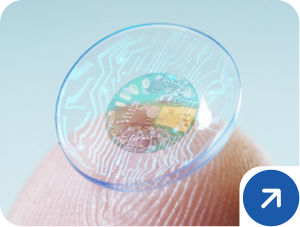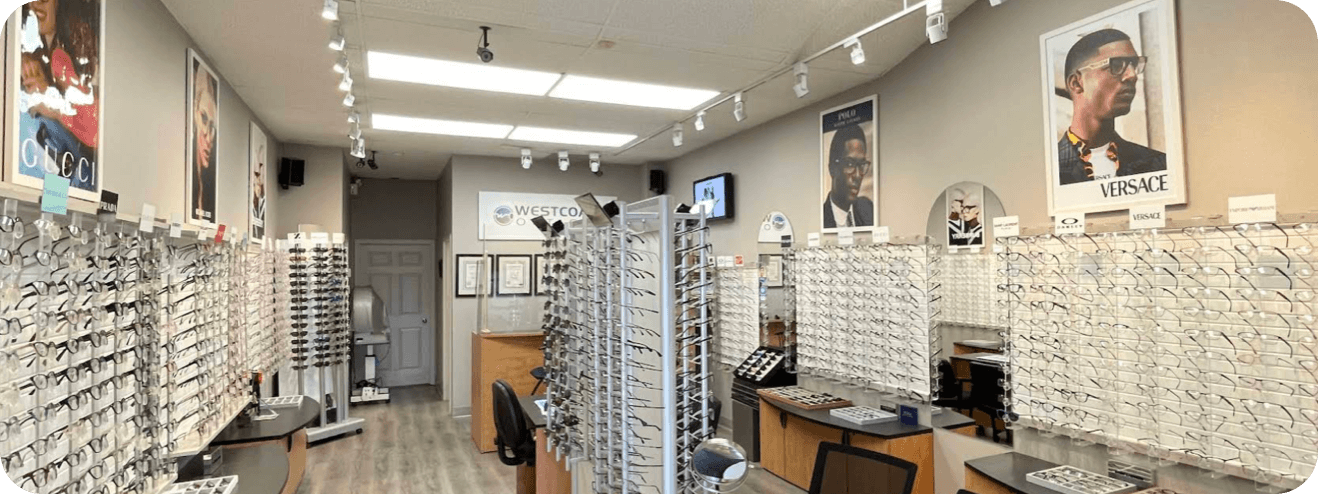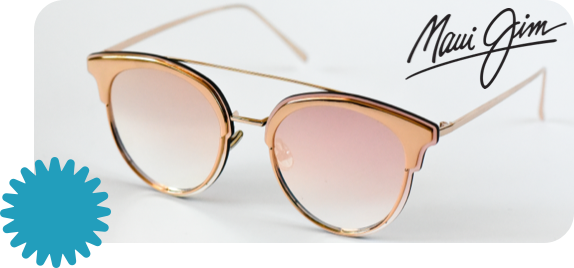Getting new glasses can be exciting, but it’s not unusual to feel a bit uncomfortable as your eyes and brain adapt to the changes. Whether you’re wearing glasses for the first time, updating your prescription, or trying out a different lens type, the adjustment process can take some time.
Knowing what to expect and how to ease into your new eyewear can make all the difference in enjoying clearer, more comfortable vision. West Coast Optical has got you covered with personalized care and professional eye exams!
The Typical Adjustment Period
For most people, the adjustment period for new glasses lasts between a few days to two weeks. However, every individual is different, and some people may notice a smooth transition after just a day. Others might take slightly longer depending on factors like their prescription strength, type of lenses, and how long they wear their glasses each day.
If your glasses come with changes such as bifocals, progressive lenses, or a significantly altered prescription, it might take a bit longer for your eyes and brain to adapt fully. This is entirely normal and doesn’t mean your new glasses are wrong for you.
Factors That Affect the Adjustment Period
Several factors can influence how long it takes for your eyes to adjust to new glasses:
Prescription Changes
If your prescription has been updated significantly, your eyes and brain need time to process the sharper or altered vision. The muscles around your eyes may feel strained as they adjust to the new lenses.
Lens Type
First-time wearers of multifocal lenses, such as bifocals or progressives, often need more time to adjust. These lenses correct multiple vision zones (distance, intermediate, and near), and learning to look through the proper part of the lens can take practice.
Lens Material & Coatings
Anti-reflective coatings, blue light filters, and high-index lenses can change the way light enters your eyes, which could contribute to an initial period of adjustment.
Lifestyle & Usage
If you don’t wear your glasses consistently, the adjustment might take longer. Wearing them regularly gives your eyes more time to adapt.
Underlying Vision Conditions
Conditions like astigmatism or presbyopia can require adjustments to different parts of the lens for optimal vision. This process might take more effort for your brain to interpret.
Common Experiences During Adjustment

During this adjustment period, you may experience symptoms that can feel disorienting at first. Be reassured that these issues are typically temporary and part of the process:
- Headaches: These can occur as your eyes and brain adapt to the new prescription.
- Blurred vision: You might notice slight blurriness, particularly in certain areas of the lens. Your brain needs time to “learn” how to use the lenses effectively.
- Dizziness or nausea: For those transitioning to progressives or high-strength prescriptions, the peripheral distortion in the lenses can cause dizziness or a sense of imbalance in the first few days.
- Depth perception changes: Adjusting to a new perspective might make you feel like you’re misjudging distances, like curbs or stairs.
These sensations are typically temporary, and each day of consistent wear should bring more comfort and clarity.
Tips for Easing the Transition
Adapting to glasses doesn’t have to feel like an uphill battle. Here are some practical ways to make the process smoother:
- Wear your glasses consistently
It might be tempting to take your glasses off when they feel uncomfortable, but this can prolong the adjustment period. Wearing them as prescribed can help train your eyes and brain to get used to them. - Take breaks if needed
If the strain becomes too uncomfortable, short breaks from your glasses can help. Just make sure to return to wearing them soon after. - Move your head, not just your eyes
If you’re using progressives or bifocals, try moving your head instead of just your eyes to focus on objects. This can help you adjust to the different lens zones more quickly. - Clean your glasses regularly
Smudges or dust on your lenses can contribute to visual discomfort. Make it a habit to clean your glasses with a microfiber cloth and lens cleaner. - Adjust to your environment
Use your glasses in various settings—indoors, outdoors, under artificial and natural light—to help your brain adapt to how they function in different situations. - Consult your optician for fitting adjustments
If your glasses feel uncomfortable on your nose or ears, a professional adjustment to the fit can work wonders. A poorly fitting frame can lead to unnecessary strain and slow down the adaptation process. - Be patient
Remember, adjusting to glasses is a learning process for your eyes. Give yourself some grace as you get used to the new changes.
When to Seek Professional Help
While most issues resolve on their own in about two weeks, there are times when you should reach out to your optometrist. If you’re still experiencing discomfort, blurry vision, or headaches after the adjustment period, it could be a sign that your prescription needs tweaking or that there’s an issue with the lenses.
At West Coast Optical, our dedicated team of optometrists and opticians is here to support you every step of the way. With over 30 years of experience in providing personalized eye care, we understand that everyone’s eyes are unique. Sometimes, even small adjustments to your frames or lenses can make all the difference.
The Importance of Personalized Guidance
Adjusting to new glasses is a highly individual experience, and getting the right pair can be life-changing. That’s why working with a trusted optometrist, like those at West Coast Optical, is so important. We’re here not only to provide high-quality eyewear but also to ensure you feel comfortable and confident in your glasses. Whether it’s your first pair or your fifth, our goal is to offer professional advice that meets your unique vision needs.
Embrace the Journey to Adjusting to Your New Glasses
Adapting to new glasses can feel frustrating at first, but the process is worth it for the clearer and more comfortable vision you’ll enjoy once you adjust. Remember to be patient with yourself and follow the tips mentioned above to ease the transition.
Our team at West Coast Optical is always ready to help you find the perfect fit for your eyes and lifestyle. Reach out to us for an appointment, professional advice, fittings, and adjustments, so you can look and feel your best in your new glasses!















